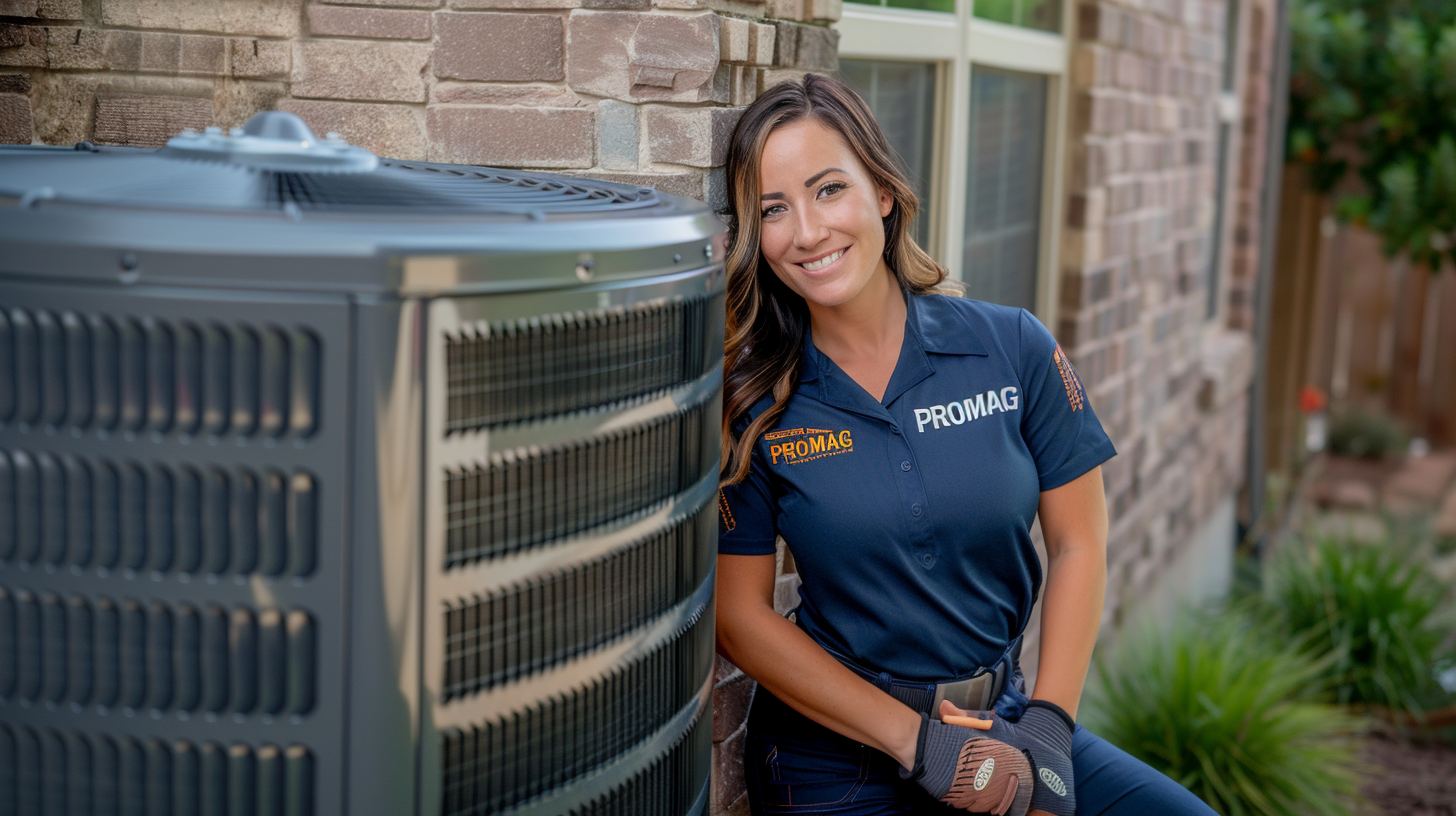Flexible System Upgrades with DMAKS HVAC Expertise.
Flexible System Upgrades with DMAKS HVAC Expertise.
Blog Article
Exactly How to Choose the Right A/c System for Your Needs
Picking the proper Heating and cooling system is a critical decision that calls for careful factor to consider of numerous aspects. The myriad of system types offered can complicate this process, leading one to ask yourself which course eventually leads to optimum convenience and effectiveness.
Evaluate Your Home Size
Analyzing your home dimension is an important initial step in picking the ideal HVAC system. A Heating and cooling system that is also tiny will certainly have a hard time to keep comfortable temperature levels, leading to raised power intake and wear on the device.
To precisely assess your home size, determine the square video footage of each room, thinking about factors such as ceiling elevation and the format. Furthermore, consider the insulation high quality and the number of home windows, as these components affect thermal performance. Residences with open flooring plans may need different system arrangements contrasted to those with many divided areas.
Making Use Of the Handbook J lots calculation approach can offer an extra specific estimate of your cooling and heating requires. This technique make up different aspects, consisting of local climate, solar gain, and occupancy patterns. By thoroughly reviewing these elements, you can ensure that your selected cooling and heating system is properly sized, leading to enhanced comfort, power efficiency, and long life of the tools.
Determine Your Spending Plan
Identifying your budget plan is an essential step in the HVAC system selection procedure, as it establishes the parameters for your choices - DMAKS HVAC. A HVAC system is a substantial investment, and comprehending your financial limitations will certainly aid limit options that fit within your ways
Begin by examining not only the initial purchase rate yet additionally installation prices, which can differ substantially relying on the intricacy of the task. Take into consideration ongoing expenses such as maintenance, repair services, and power usage. A system may appear budget-friendly originally yet can lead to greater costs with time if it is much less effective.
It is a good idea to assign a backup fund for unforeseen expenditures that might arise throughout setup or preliminary system adjustments (DMAKS HVAC). Additionally, explore funding options or rebates that may be offered, as these can ease the burden of in advance costs
Eventually, having a clear budget enables you to engage with HVAC specialists better, guaranteeing you obtain tailored suggestions that aligns with your economic goals and home demands. By being persistent concerning your budget, you can make enlightened decisions that enhance convenience without endangering financial security.
Evaluate Energy Effectiveness
Power efficiency plays an important duty in the overall efficiency and cost-effectiveness of your Heating and cooling system. Look for systems with a high Seasonal Energy Efficiency Ratio (SEER) for cooling down and a high Yearly Gas Usage Effectiveness (AFUE) ranking for home heating.
In addition, think about the Energy Celebrity qualification, which signifies that the system fulfills strict effectiveness guidelines established by the Epa. Buying a Power More Info Star-rated HVAC system can bring about significant financial savings with time, especially in locations with severe temperature level changes.
Another variable to evaluate is the system's size and ability. An oversized or small unit can result in inefficiency and enhanced energy prices. DMAKS HVAC. Appropriate sizing, typically established with a Hands-on J tons computation, guarantees that the system operates at ideal performance


Take Into Consideration Environment and Atmosphere
When choosing an a/c system, it is important to take into consideration the local climate and environmental conditions, as these variables significantly influence the system's efficiency and efficiency. Different areas experience varying temperature level extremes, humidity degrees, and seasonal adjustments, all of which influence heating and cooling demands.

Additionally, local environmental elements, such as air high quality and prospective irritants, should inform your choice. Equipments furnished with innovative filtration technologies can help reduce contaminants and supply cleaner air. In addition, think about the power sources offered in your area-- some heating and cooling systems are a lot more reliable when powered by natural gas or eco-friendly energy sources.
Ultimately, aligning your HVAC system option with your regional environment and ecological Bonuses considerations will lead to improved comfort, enhanced efficiency, and lower power expenses.
Explore System Types and Features
As homeowners seek to optimize comfort and efficiency, checking out the various types of HVAC systems and their distinct attributes becomes crucial. The primary types of HVAC systems consist of main air conditioning, warmth pumps, ductless mini-split systems, and heating systems. Each system offers distinct advantages customized to various needs and choices.
Central air conditioning systems supply uniform air conditioning throughout a home, making them excellent for larger areas. Heatpump work as both heating and cooling down solutions, Find Out More making use of electrical energy to move warm, which can result in lower energy costs. Ductless mini-split systems are becoming significantly prominent due to their versatility and ease of installation, permitting property owners to manage the temperature in specific spaces without considerable ductwork.

Verdict
To conclude, choosing the ideal cooling and heating system demands mindful factor to consider of numerous factors, consisting of home size, spending plan restraints, energy efficiency, regional climate, and offered system kinds. A comprehensive analysis of these components makes certain ideal convenience and cost-effectiveness. By adhering to a structured approach, house owners can make educated decisions that line up with their specific needs and choices, ultimately bring about enhanced indoor air top quality and power savings.
Report this page